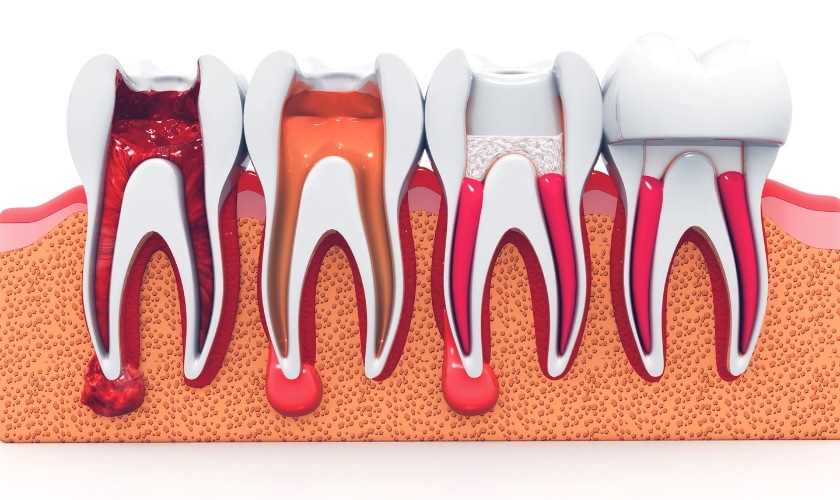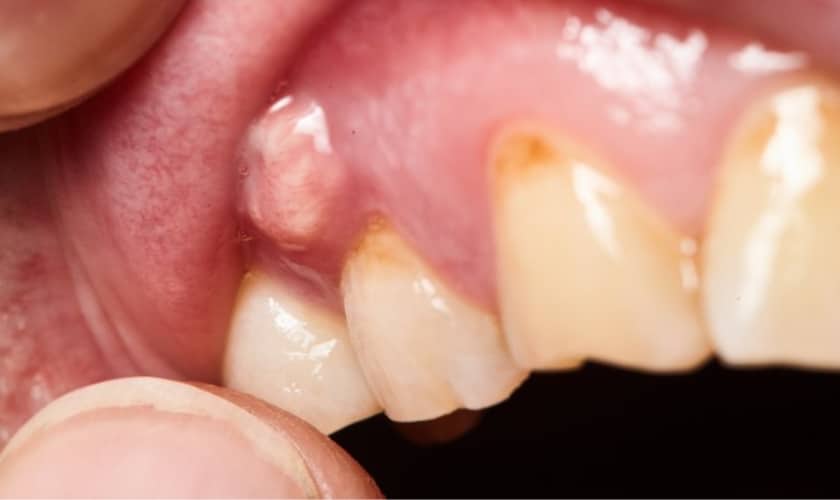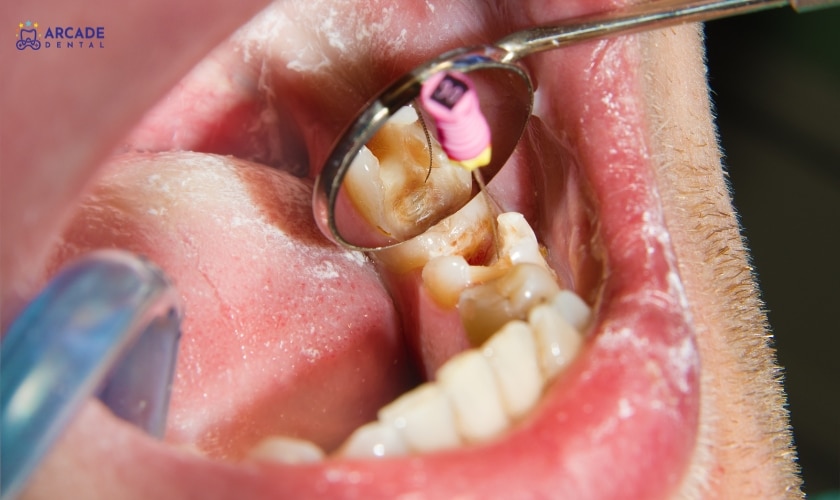
Decoding the complex language of our teeth is required before embarking on a route to optimal oral health. Within the murmurs of recurring toothaches and echoes of increased sensitivity is a story—often unnoticed yet critical. Welcome to the world of dental pain, where recognizing the symptoms becomes a compass that guides us through different root canal situations. We will unravel the enigma of dental discomfort in this investigation, equipping you to recognize when your teeth are begging for help. So, let us set out on a journey to decode the signals, guaranteeing your smile remains robust and pain-free in the face of dental issues.
What Exactly Is A Root Canal?
A root canal is a dental operation in which germs and decay are removed from the tooth pulp, root, and nerve; the region is disinfected with antibiotics; the empty roots are filled; and the area is sealed to prevent further deterioration. It keeps the tooth in place and prevents additional decay, but it makes it more brittle, necessitating the use of a crown. The American Association of Endodontists claims that approximately 15 million root canals are performed in the United States each year.
Recognizing The Symptoms:
Subtle cues need attention in the language of dental anguish. Persistent toothaches, increased sensitivity, and subtle changes all say a lot. Understanding these symptoms is critical in determining if a root canal is the best therapy for your teeth.
Persistent Toothache:
Persistent tooth discomfort, which may remain or disappear over time, is a typical indication that a root canal is required. This discomfort might be deep in the bone of the tooth or pertain to other teeth. Gum disease, cavities, sinus infection, damaged fillings, or an infected tooth are all possible reasons for tooth discomfort. It is critical to see a dentist for an early diagnosis and treatment, as early detection frequently results in better outcomes. Gum disease, cavities, sinus infection, damaged fillings, or an impacted tooth are all possible reasons.
Increased Sensitivity:
Sensitivity to hot or cold meals and beverages may suggest a root canal is required. Sharp, shooting pain while drinking coffee or eating ice cream may suggest a damaged dental nerve that necessitates a root canal. Tooth sensitivity can cause mild discomfort or acute pain, and persistent pain may necessitate a root canal. Infected blood vessels and nerves in the tooth may be harmed as well. Cold meals and drinks can cause severe discomfort for affected people. Avoid crushing on one side of the mouth and swallowing ice to avoid unpleasant tooth discomfort. To resolve the sensitive tooth condition, your dentist may offer a root canal.
Swollen Gums:
Swelling and discomfort around a tooth suggest inflammation, which an infection might cause.If left untreated, it might lead to significant complications. Swollen gums surrounding a sore tooth may necessitate root canal therapy. Swelling outside the root tip region may be induced by acidic waste products from dead pulp tissues. A gum boil, parulis, or abscess may form as a result of the tooth infection, seeping pus. This might result in an unpleasant taste in the mouth and a poor breath odor. In some circumstances, a root canal may be required to resolve the problem.
Discoloration Of The Tooth:
Tooth discoloration, particularly a deepening or grayish hue, may indicate pulp death, suggesting interior injury and decay. A pulp infection, trauma, or internal tissue collapse can cause this. The discoloration is more visible in the front teeth and may suggest the necessity for a root canal. If tooth darkening is observed, dentists should be examined since severe discoloration may signal more serious difficulties than frequent drinking of red wine. Consistent discomfort and grayish-black tooth color may suggest dying dental pulp that requires removal via root canal treatment.
Pimple On The Gums:
Dental abscesses are a collection of pus on the gums around a tooth, suggesting an infection that has reached the tooth’s root. Addressing these issues as soon as possible with a root canal will help prevent the infection from spreading to other regions of the body.
How To Avoid A Root Canal:
Maintain proper oral hygiene practices such as brushing twice a day, flossing between teeth, using fluoride toothpaste or a fluoride rinse, getting dental examinations every six months, and having teeth professionally cleaned annually to avoid root canals. Sugary and refined carbohydrate consumption should be limited since these foods adhere to teeth and might create problems. If you eat sweet meals, immediately rinse your mouth or brush your teeth. Maintaining good oral health requires regular dental visits and expert cleanings.
Seeking Professional Guidance:
If you’re suffering from one or more of these symptoms, you should see your dentist right away. They can do a comprehensive examination, including X-rays, to assess the degree of the problem. Early identification and intervention improve the success rate of root canal treatments and can avoid the need for more invasive operations such as tooth extraction.
Recognizing the whispers of suffering in the symphony of dental care transforms doubt into empowerment. Quick action in the face of prolonged discomfort ensures the resilience of your grin. By recognizing and acting on the warning symptoms, you may steer yourself towards a pain-free future in which a prompt root canal operation not only saves teeth but also protects your long-term dental health. Allow this trip to serve as a testimonial to the importance of listening to your teeth. This symphony echoes the vibrancy of preventive dental care for a future decorated with vivid, long-lasting smiles.




